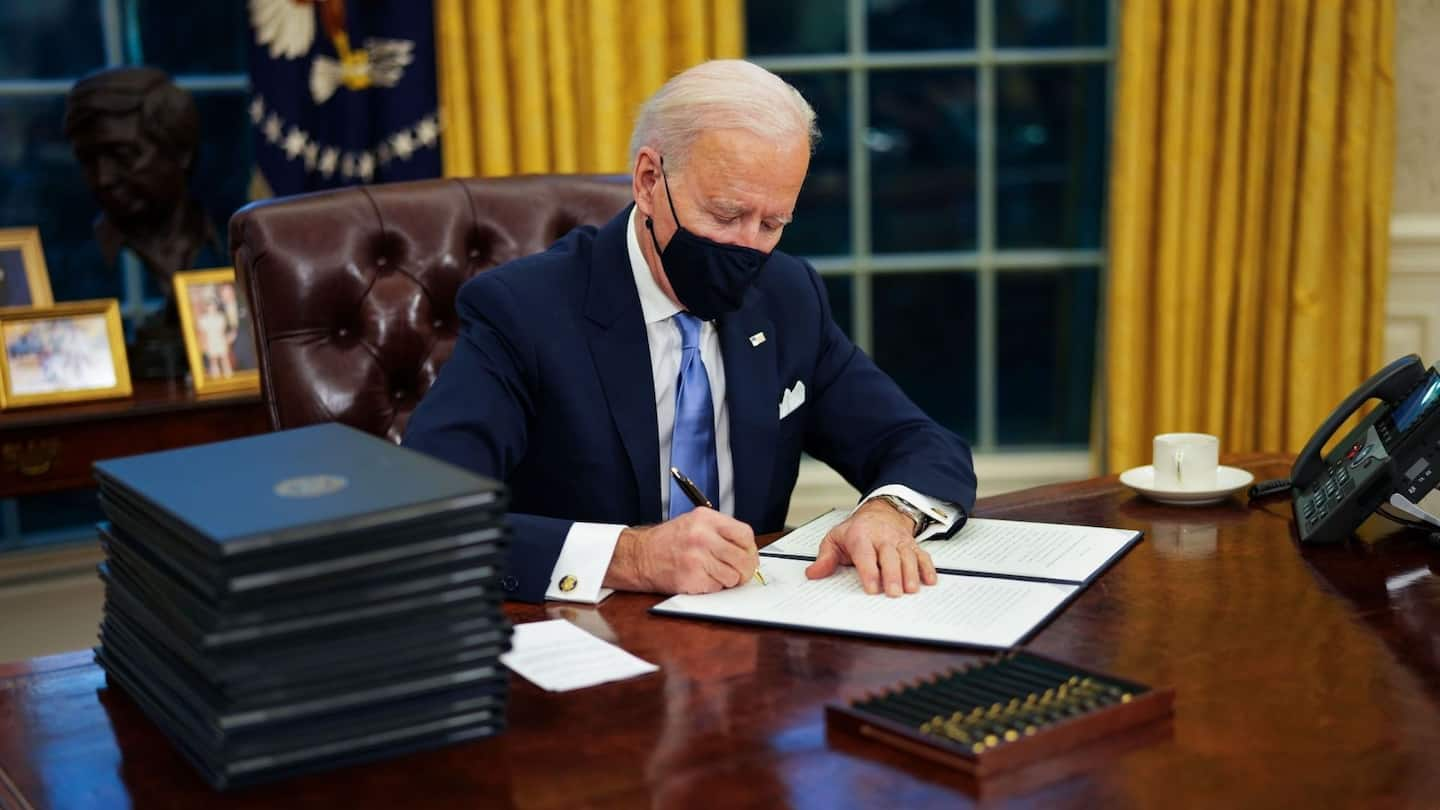The GOP’s oversimplified pushback on Biden’s executive actions

“This isn’t the unity he promised,” Heritage Foundation president Kay James said. “He’s signaled that he’ll take unilateral steps that usurp Congress’ power and leave no room for debate or dissent.”
“The scale of Joe Biden’s executive orders and their impact on Americans is stark,” said Sen. Tom Cotton (R-Ark.), a potential 2024 GOP presidential candidate. He suggested the actions contradicted how Biden “preached unity from the inaugural stand.”
“These executive orders and proposals — bypassing Congress … do not represent an agenda to unify the country,” said Rep. Garland “Andy” Barr (R-Ky.).
Freshman Rep. Lauren Boebert (R-Colo.) summed it up: “If Biden wants Congress to work with him, he should work with Congress instead of signing 15 executive orders and 2 executive actions to circumvent us.”
Executive actions are indeed less than ideal — as opposed to working through Congress to change the law and provide more concrete change. Generally speaking, executive actions must navigate existing law by adjusting priorities and enforcement, without creating new law in the process. Because of that, they risk being struck down in court.
But left unsaid in much of the Republican criticism of Biden’s executive actions is this: Republicans said little when Donald Trump did much the same thing during his presidency in the face of a Congress that often failed to pass his priorities. In addition, most of what Biden did Wednesday wasn’t actually treading new ground, but rather undoing things Trump had already done via the kind of executive action his opponents decried.
Trump stretched the authorities of the chief executive, most notably via a travel ban from majority-Muslim countries, suspending the payroll tax during the coronavirus pandemic, and using emergency funds to construct a wall on the U.S.-Mexico border. While he didn’t take as many executive actions on his first day as Biden did, his first week included plenty of big steps, like the travel ban — which he made no effort to ask Congress to pass and which was sprung on officials, creating an enforcement nightmare. In the end, Trump averaged more executive actions per year than any president since Jimmy Carter, according to the American Presidency Project.
Not all executive actions are created equal, of course. Some are truer to the purpose of creating change within the existing bureaucracy, while others are clear attempts to try to do things akin to what Congress would otherwise do.
But even on that count, some of the GOP objections are curious.
A majority of the 17 executive actions signed by Biden actually undid previous executive actions taken by Trump. Among them: Rejoining the Paris climate accord and the World Health Organization, rescinding Trump’s order on the 1776 Commission, canceling a plan to limit the Census only to citizens, reversing Trump’s travel ban, halting construction of the border wall that used emergency funding, and undoing Trump’s ban on gender diversity training that had been struck down by courts. To the extent you believe such things should be left to Congress, rolling back previous executive actions might theoretically be something you should support, given it puts the onus on legislators.
Biden did include a number of things that weren’t reversals of Trump’s original executive actions. He required masks on federal grounds — and is now extending that to airports and on many planes, trains, ships and intercity buses. He also extended deportation protection to undocumented immigrants. While Trump took executive action on this, he was then rescinding executive action by his predecessor.
Barack Obama during his presidency initially cast doubt on his ability to take such a step — citing his lack of a “magic wand” — lending credence to the idea that it was overstepping his bounds.
But apart from the actions mentioned above, Biden’s actions aren’t terribly bold in relation to his predecessors. The other executive actions:
- He appointed a White House coronavirus coordinator. (Trump’s White House also — controversially — reorganized the office tasked with overseeing pandemic response.)
- He extended a moratorium on evictions amid the coronavirus (Trump also did this).
- He extended a pause on student loan payments amid the coronavirus (which Trump also did).
- He required executive branch appointees to sign an ethics pledge barring them from acting in personal interest. (Trump issued executive actions curtailing the ability of administration officials from lobbying after leaving, though he rescinded two key ones in his final hours as president.)
In other words, relatively little of this trod upon ground that Trump hadn’t previously trodden upon. Republicans might object to the moves on ideological grounds — as many of them have — but the idea that it’s some abuse of power or that these were unthinkable moves for an administration trying to work with Congress doesn’t actually fit with what has happened in the past four years.






